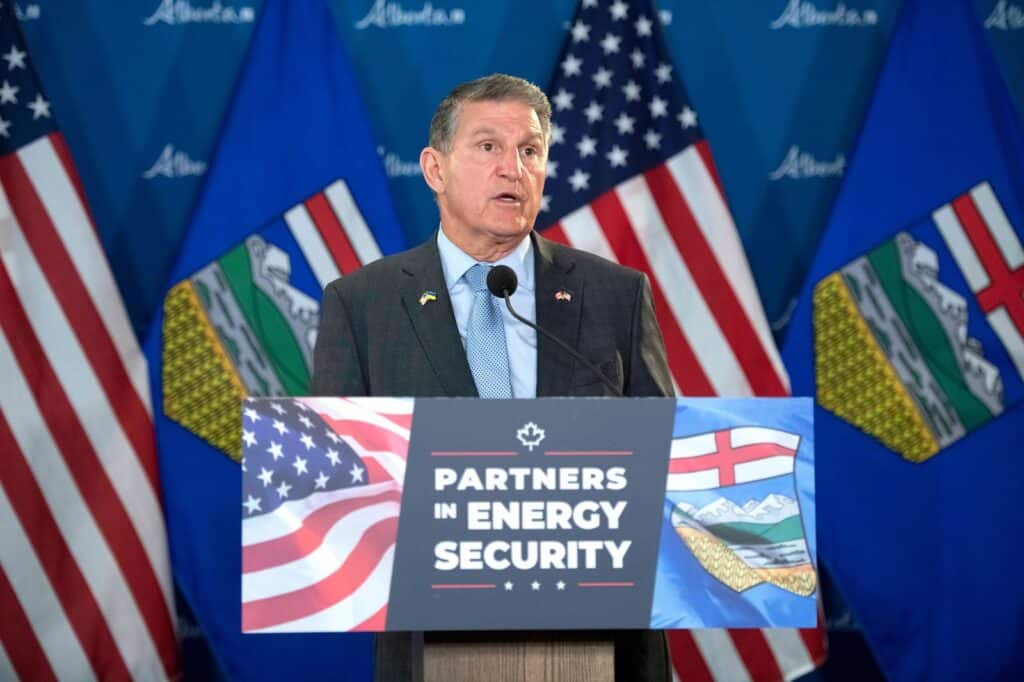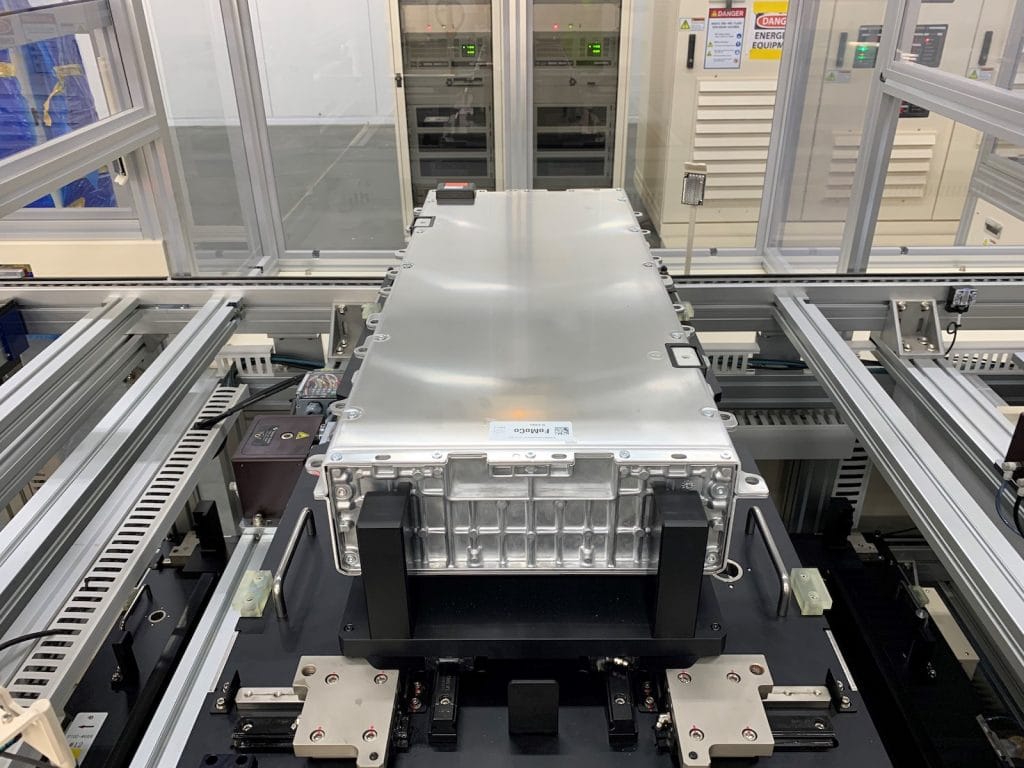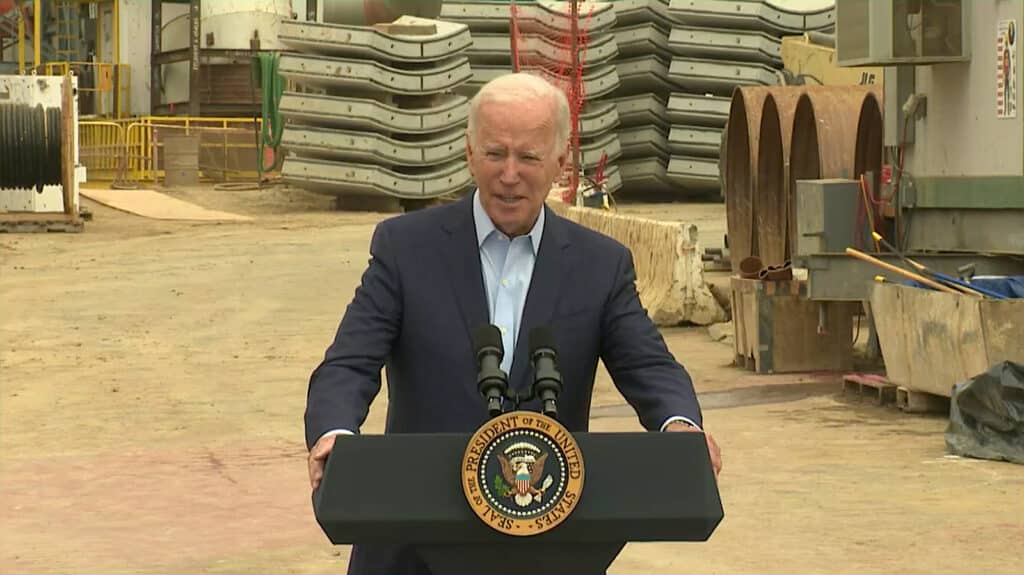Sen. Manchin Threatening to Sue Over New EV Battery Rules
Senator Joe Manchin, who pushed for strict new limits on EV incentives, said he is “willing to go to court” if the Biden administration takes a loose view on new rules requiring local sourcing of batteries and the minerals used to make them.

The West Virginia Democrat told reporters Wednesday he is “willing to stop it all,” an apparent threat that could mean blocking all EV sales incentives, if “they … try to screw me on this.”
The U.S. Treasury Department has so far delayed interpreting strict new language included in the Inflation Reduction Act passed by Congress last year, but is expected to issue guidelines in the coming days.
Revised incentive rules
As a strong proponent of battery-electric vehicles, President Joe Biden sought to expand and extend previous federal rules authorizing up to $7,500 in tax credits for buyers of qualified EVs. But the old law set a sales cap that several manufacturers, including Tesla and General Motors, exceeded by late last year. The White House originally proposed the elimination of those caps, while it also wanted to raise the incentives to as much as $12,500.
In the end, the $7,500 limit was kept, though the sales cap of 200,000 EVs per manufacturer was eliminated. But new strictures were put in place. These include limits on the income of buyers, as well as a price cap of $80,000 for vehicles defined as SUVs. And the price cap is a lower $55,000 for EVs falling into the sedan, coupe, hatchback and wagon categories.

The new rules also require that an EV be built in the U.S. or a handful of other allies, notably Canada and Mexico.
Manchin wants strict guidelines
But Manchin is concerned about two other restrictions he championed. Half of the incentives are to be based on escalating targets for battery production. They must be produced somewhere within North America. The other half requires that the key minerals used in those batteries, including lithium, nickel, cobalt and manganese, come from the U.S. or its free trade partners.
But Manchin and his backers worry that the final rules may water down the battery regulations.
“What I’m most concerned about is how they classify the processing with manufacturing,” Manchin told trade publication Automotive News. “Manufacturing is meant to bring manufacturing back to the United States. It’s not basically allowing everyone to put all the parts and build everything you can for that battery somewhere else and then send it here for assembly.”
Critics say the industry needs times

Critics, however, warn that strict interpretation of those rules might effectively slow down EV adoption as there currently are few plants producing lithium batteries in the U.S. and relatively few regional sources for key minerals.
They are seeking a slow ramp up of the battery guidelines to give automakers and battery suppliers time to shift sourcing and production. They point to data showing that such a shift is occurring as a result of the IRA.
U.S. battery capacity rising fast
Last year there was barely 55 gigawatt hours of lithium-ion battery production capacity in the U.S., according to the Department of Energy. That is forecast to reach about 500 GWh by 2025, and 1 terawatt hour by 2030.
“So far, 17 new EV battery facilities have been announced, aided by the latest round of Federal incentives in the Inflation Reduction Act,” Bank of America Securities Research Analyst Andrew Obin wrote in a Feb. 22 report to clients.
Several new plants, including a Volkswagen facility in Canada, have been announced since Obin issued his report.
Treasury’s plan
According to Reuters, the rules the Treasury plans to implement would initially require just 50% of the value of battery components to be produced or assembled in North America for buyers to received up to $3,750 in EV incentives. They would qualify for the remaining $3,750 if at least 40% of the value of the mineral content in those batteries come from the U.S. or a free trade partner.
Those targets would rise 10% annually, and when asked about the threats being made by the West Virginia senator, the White House told the news service, “We have a strong and productive relationship with Senator Manchin.” A spokesperson added the administration was proud of the bill and the “shared goals it achieves.”
Auto Lovers Land
Comments
Post a Comment